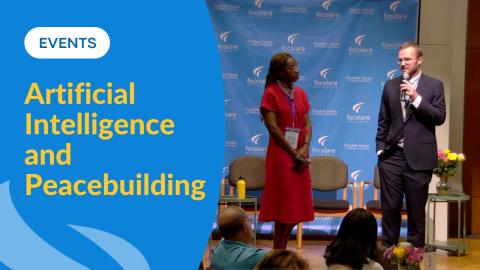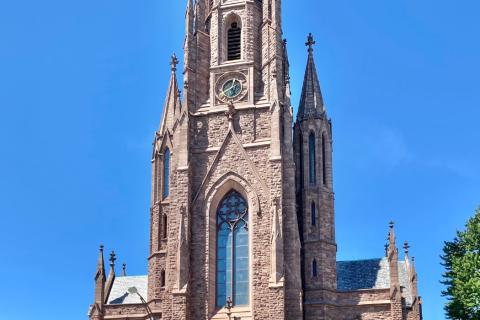
Opening ceremony at the COP26 Climate Change Conference 2021 in Glasgow. Photo from Wikipedia.
The 2021 United Nations Climate Change Conference (COP 26) in Glasgow has come to a close, with some encouraging signs of hope and much disappointment at the negotiation table.
Martin Palmer, former Secretary General of the Alliance of Religions and Conservation (an international organization whose aim is to assist the major world religions develop environmental programs) and current CEO of FaithInvest, helps us unpack the potential that faith communities have in affecting climate change. He is the author of more than 20 books on religious and environmental topics, a regular BBC contributor and a lay preacher in the Church of England.
What is the specific role of faith communities in the face of such an unprecedented ecological crisis? Why does it matter so much?
The great faith communities are not just powerhouses of ancient spiritual wisdom, with millennia of experience of guiding humanity through profound crises. They are also among the most significant stakeholders on the planet.
Without the educational, medical, welfare and compassionate work of the faiths through schools, hospitals, youth work, welfare agencies etc., civil society would collapse within weeks.
Yet, for some reason, we as faith communities seem to have forgotten that we run 50% of all schools; we manage around 8% of landmass on the planet, including 5% of commercial forests; we are collectively one of the largest investment groups with trillions of dollars invested. We seem not to remember this.
So, while the spiritual aspect is vital because it gives us the wider perspective of time, space and meaning, if we ignore the stakeholder role, we go down a bit of a rabbit hole. For example, the Catholic Church has more schools than both America and Canada combined. If, as we know from all major research reports, around 85% of people belong to a major faith, then we need to accept that we are part of the problem as well as potentially the changemakers!
This was dramatically visible in COP 26 in Glasgow, where faith communities were major players in everything from the marches, demonstrations and submitting petitions, through to the multi-faith statement issued by religious leaders of every major faith.
It is so important what you say about taking an active role as faith communities in leading the change. Have you noticed a change of attitude in the last few years in this respect?
I see a huge shift. The faith communities are now seen as essential to any possible successful venture by the media, investment, education, moral and spiritual leadership, on-the-ground practical projects with communities, etc.
And for the first time, all the major faith environment groups — such as GreenFaith, Eco-Sikh, Daoist Ecological Temple Network, Hazon (the largest Jewish environmental group) and of course now the Vatican through the Laudato Si’ Movement and Focolare — are working side by side, bringing the wonderful pluralism of different beliefs, values and networks together, especially through the Faith Plans program.
The danger is that we are expected to be the silver bullet that solves everything, so some humility is required by the faith communities. But that we are now considered essential partners for any manageable and liveable future is beyond doubt.
Last October, on the feast of St Francis of Assisi, Pope Francis and other religious leaders, including Archbishop of Canterbury Justin Welby and Orthodox Ecumenical Patriarch Bartholomew, issued a pre-COP26 appeal on climate change and a public commitment to create plans for the environment. What is the importance of planning?
The pope’s statement, endorsed by all major faiths, marks a turning point. For the first time, the faith communities committed to making plans to change the impact of their faith on the environment.
For example, there is a specific commitment to invest in a sustainable, just and environmental future. This is unique, and this commitment is what is now driving the Faith Plans through the Laudato Si’ Action Platform for the Catholics and through the Faith Plans platform for all other major Christian and other faith organizations.
For faith communities really to be effective, they need not just wonderful words and wisdom, but they also need to know where they could be changemakers. This means knowing how extensive their role in education is in each place or country; how many clinics and hospitals they have; where their investments are; how much land they own; what range of professional skills there are in the faith communities, and so forth. This planning will help their actions to be effective.












